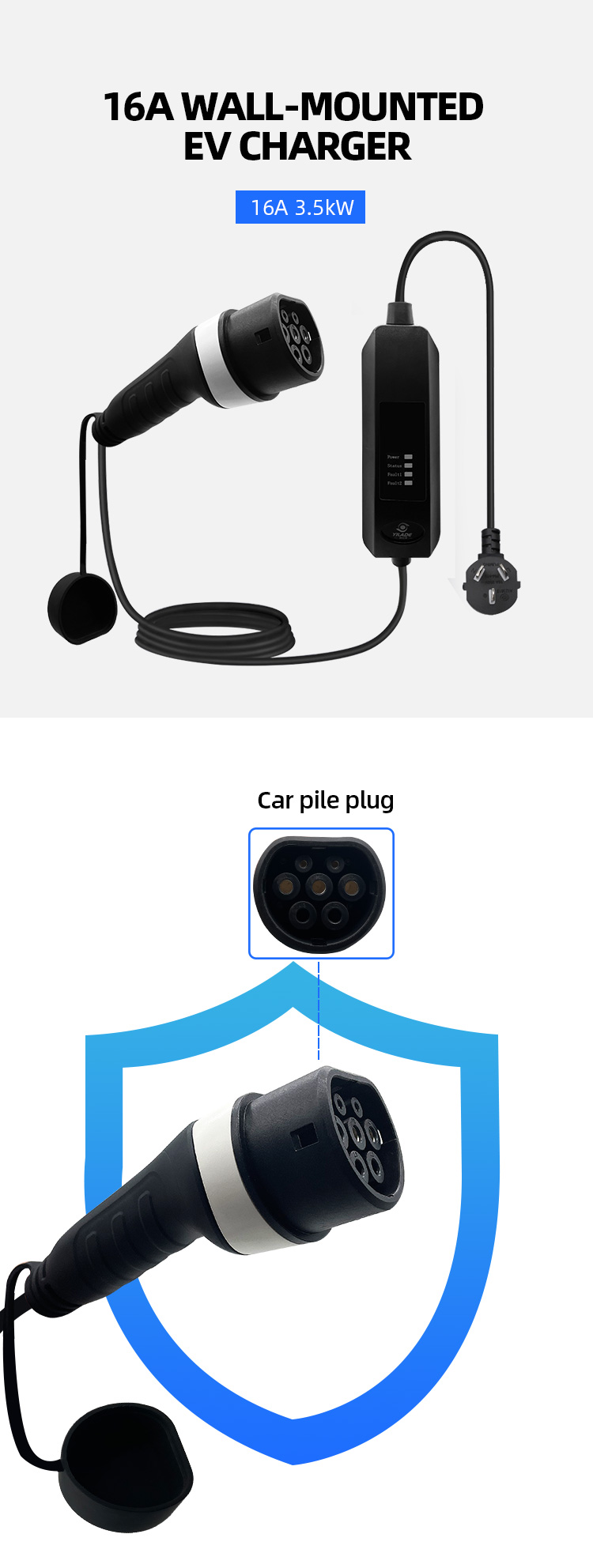Electric vehicles (EVs) have gained immense popularity and are revolutionizing the automotive industry. As EV adoption continues to increase, the importance of portable EV chargers becomes evident. This article will provide a comprehensive understanding of the types of EVs that are compatible with portable chargers, ensuring convenient and hassle-free charging on the go.
Different Types of Electric Vehicles
Electric vehicles can be broadly classified into three categories: Battery Electric Vehicles (BEVs), Plug-in Hybrid Electric Vehicles (PHEVs), and Hybrid Electric Vehicles (HEVs).
1. Battery Electric Vehicles (BEVs): BEVs rely solely on electricity as their primary power source. These vehicles store electricity in the onboard battery pack, which powers the electric motor to propel the vehicle. BEVs offer zero tailpipe emissions, making them environmentally friendly and energy-efficient. Notable examples of BEVs compatible with portable EV chargers include models like Tesla Model 3, Nissan Leaf, and Chevrolet Bolt.
2. Plug-in Hybrid Electric Vehicles (PHEVs): PHEVs combine the benefits of traditional internal combustion engines and electric power. These vehicles have an internal combustion engine that works in conjunction with an electric motor and a rechargeable battery. PHEVs can run on electric power alone for short distances, after which the internal combustion engine kicks in. Some popular PHEVs compatible with portable EV chargers are the Mitsubishi Outlander PHEV, Toyota Prius Prime, and BMW i3.
3. Hybrid Electric Vehicles (HEVs): HEVs primarily rely on conventional fuel engines, such as gasoline, while also incorporating an electric motor and battery. Unlike PHEVs, HEVs cannot be plugged in for recharging; instead, the battery regains charge through regenerative braking and the internal combustion engine. Well-known HEVs include the Toyota Camry Hybrid, Honda Accord Hybrid, and Ford Fusion Hybrid.
Compatibility with Portable EV Chargers
Portable EV chargers provide convenience and flexibility for EV owners, ensuring easy charging at any location. Most portable chargers are designed to be compatible with a wide variety of EVs. However, it is essential to consider the charging requirements of individual vehicle models and the capabilities of the portable charger before use.
1. Charging Levels: Portable EV chargers are typically compatible with Level 1 and Level 2 charging. Level 1 chargers use a standard household outlet (120V) and are slower, while Level 2 chargers require a dedicated charging station (240V) and offer faster charging. It is important to ensure the compatibility of the EV with the charger's charging level.
2. Charging Connector Types: Different EV models use different charging connectors, such as Type 1 (J1772), Type 2 (Mennekes), or CHAdeMO. Portable chargers often come with adapters, allowing them to be compatible with various connectors. EV owners must ensure the charger's compatibility with their vehicle's specific connector type.
3. Power Output: Portable chargers have different power output capabilities, usually ranging from 3.6 kW to 7.2 kW. Higher power output chargers facilitate faster charging. It is crucial to check the EV's maximum charging capacity and purchase a portable charger with a suitable power output to avoid any complications.
Advantages of Portable EV Chargers
Using portable chargers offers several advantages for EV owners:
1. Convenience: Portable chargers allow EV owners to charge their vehicles at any location with a compatible power source, ensuring convenience and flexibility.
2. Emergency Situations: Portable chargers come in handy during emergencies or when a public charging station is not readily available, ensuring that EV owners are never stranded with a low battery.
3. Cost Savings: Charging an EV using a portable charger at home during off-peak hours can lead to significant cost savings compared to public charging stations or fast chargers.
Conclusion
Portable EV chargers offer a practical solution for charging electric vehicles on the go. Understanding the compatibility of different types of EVs with portable chargers, considering factors like charging levels, connector types, and power outputs, ensures efficient and convenient charging. With the growing demand for EVs, portable chargers play a crucial role in supporting the widespread adoption of electric vehicles and creating a sustainable transportation future.

